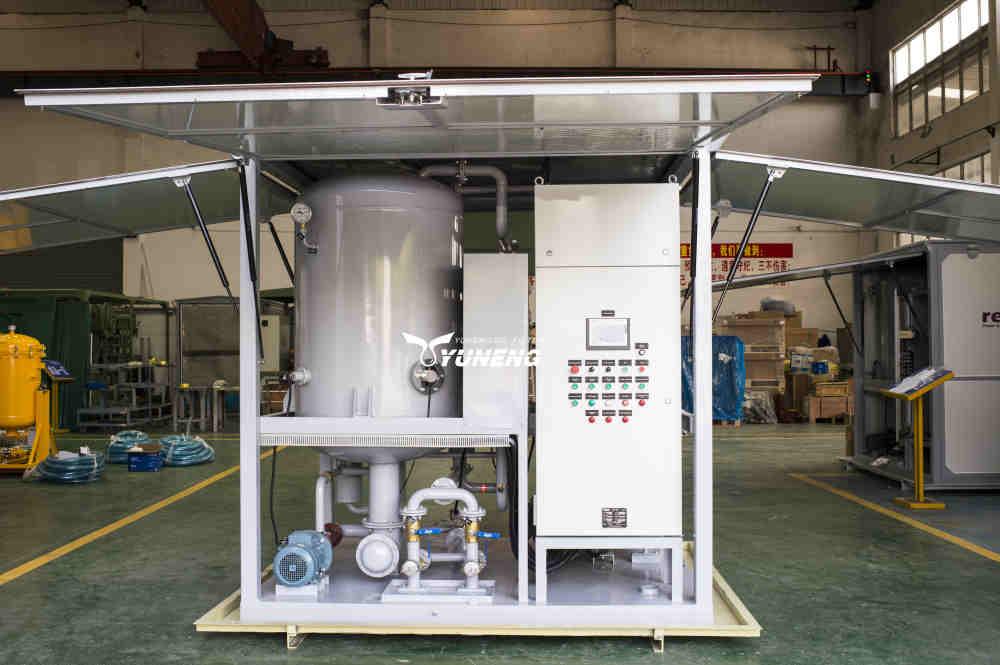Keeping the Water Out: Why Transformer Oil Dehydration Matters

Imagine the vital organs of our power grid – transformers. These unsung heroes silently convert electricity to different voltage levels, ensuring smooth transmission and distribution of power to our homes and businesses. But just like any machine, transformers rely on a healthy internal environment to function optimally. This is where transformer oil comes in, and keeping it free of water is crucial.
Transformer oil acts as both a coolant and an insulator. It circulates within the transformer, absorbing heat generated during operation and preventing electrical breakdowns. However, water is the enemy of transformer oil. When water enters the oil, it can cause a multitude of problems:
Reduced Dielectric Strength: Water significantly reduces the oil's ability to resist electrical current. This can lead to arcing faults, internal damage, and ultimately, transformer failure.
Sludge Formation: Water can react with other contaminants in the oil, forming sludge deposits that can clog internal passages and impede proper cooling.
Accelerated Paper Degradation: Transformers contain cellulose paper insulation. Water exposure weakens these paper components, reducing their lifespan and potentially leading to catastrophic breakdowns.
Enter Transformer Oil Dehydration
To combat these hazards, transformer oil dehydration is a critical maintenance practice. This process removes moisture from the oil, restoring its insulating properties and preventing water-related problems. Dehydration can be achieved through various methods, including:
Vacuum Dehydration: This method uses a vacuum chamber to create low pressure. Under this pressure, water evaporates from the oil and is removed by the system.
Desiccant Breathing: This approach employs desiccant bags or cartridges filled with moisture-absorbing materials. As the oil circulates, it passes through the desiccant, removing water molecules.
Centrifugation: In some cases, high-speed centrifugation can be used to separate water from the oil due to their differing densities.
The Benefits of Dehydration
By implementing regular transformer oil dehydration, several benefits are achieved:
Enhanced Reliability: Dry oil reduces the risk of electrical breakdowns, ensuring reliable power transmission and minimizing the risk of outages.
Extended Transformer Life: Dehydration helps preserve the transformer's internal components, leading to a longer lifespan and reduced replacement costs.
Improved Efficiency: Properly dehydrated oil allows for better heat dissipation within the transformer, resulting in more efficient operation.
Conclusion
Transformer oil dehydration is a vital practice for maintaining the health and performance of transformers. By keeping water out of the oil, we ensure the smooth flow of electricity and safeguard the vital infrastructure that powers our world. Remember, even a small amount of water can have a big impact, so keeping transformer oil dry is a priority for a reliable and efficient power grid.
- Art
- Causes
- Crafts
- Dance
- Drinks
- Film
- Fitness
- Food
- Games
- Gardening
- Health
- Home
- Literature
- Music
- Networking
- Other
- Party
- Religion
- Shopping
- Sports
- Theater
- Wellness


